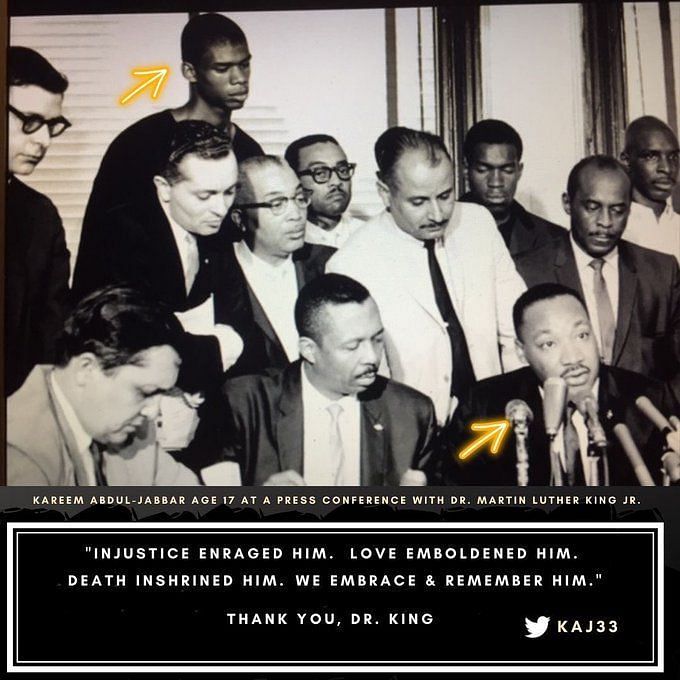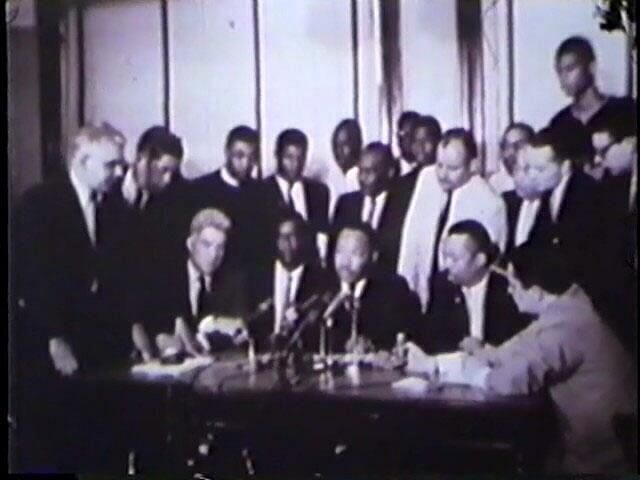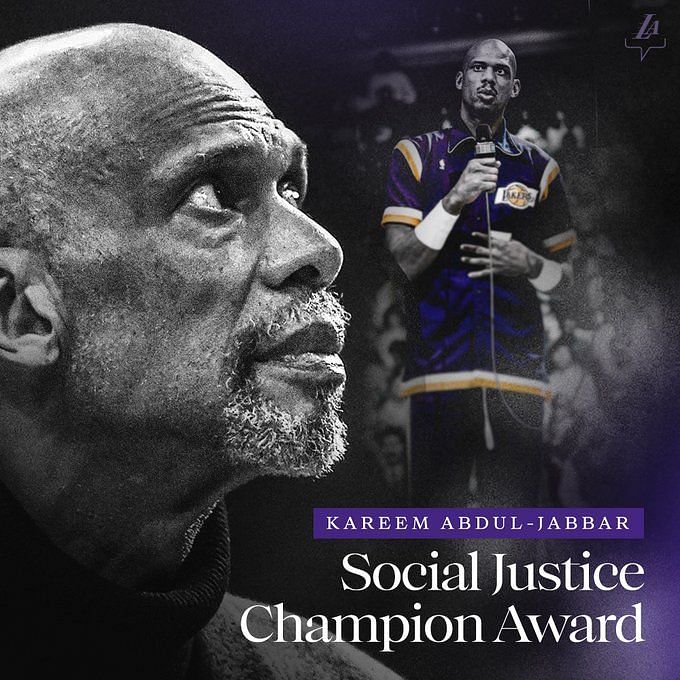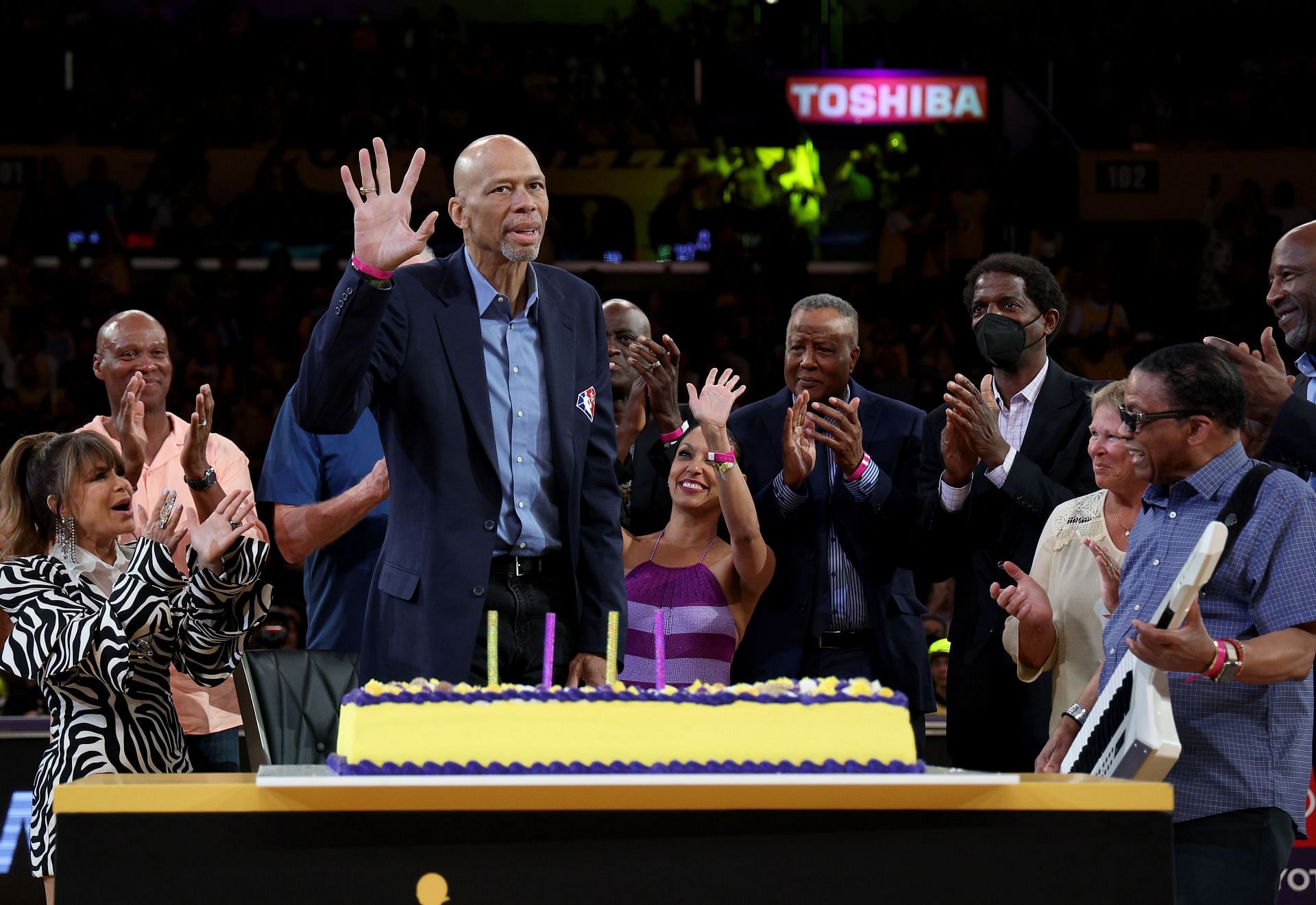
Kareem Abdul-Jabbar celebrates MLK day with an iconic picture of him and Martin Luther King Jr.
Kareem Abdul-Jabbar, who was known as Lew Alcindor in his early years, was a basketball phenom expected to dominate the sport from a young age. At only 17 years of age, he was already a huge talent that transcended what New York hoops could offer as a challenge.
The future LA Lakers icon, however, wanted to make a mark not just on the court. He wanted to make an impact as a young black citizen by joining the Harlem Youth Action (HARYOU-ACT). It was here in 1964 when he met the late Dr. Martin Luther King Jr. He even had his photo taken during a press conference where King was the guest speaker.
Jan 16 is celebrated as Martin Luther King Day in the US and Kareem Abdul-Jabbar took to Twitter to share the throwback photo along with a short tribute.
“Celebrating MLK Day with a flashback photo in history. I was only 17 years old when this picture was taken. I was at a press conference where Dr. King was speaking. This photo represents inspiration to me to begin my writing career.”
The HARYOU-ACT was formed by New York City officials to educate black children about their cultural heritage. It was also a movement that tried to cater to underprivileged kids who frequented the streets to help their families earn money.
Kareem Abdul-Jabbar spent some of his formative years here as a reporter, who was tasked with covering some of the group’s most important events. None was bigger or more important than Dr. Martin Luther King’s appearance in Harlem in 1964.
“The Captain” was ultimately given a chance to ask the former Nobel Prize winner a question. The budding journalist’s inquiry was practical and logical but had future implications. Here’s what he asked Dr. King:
"What do you think about the importance of Dr. Clarke's program to the people of Harlem?"
HARYOU-ACT’s program director was John Henrik Clarke. Dr. Clarke’s project made a difference, particularly at a time when civil unrest and tension were arguably at their peak in America.
Dr. King answered that what Dr. Clarke did was a success story everyone in New York City could learn from.
In his book “On the Shoulder of Giants,” Kareem Abdul-Jabbar recounted his thoughts after that momentous day:
"From that day on, I understood what I had to do with my life. I knew it had to be something that would affect the African American community in a positive way."
The NBA named its social justice champion award after Kareem Abdul-Jabbar
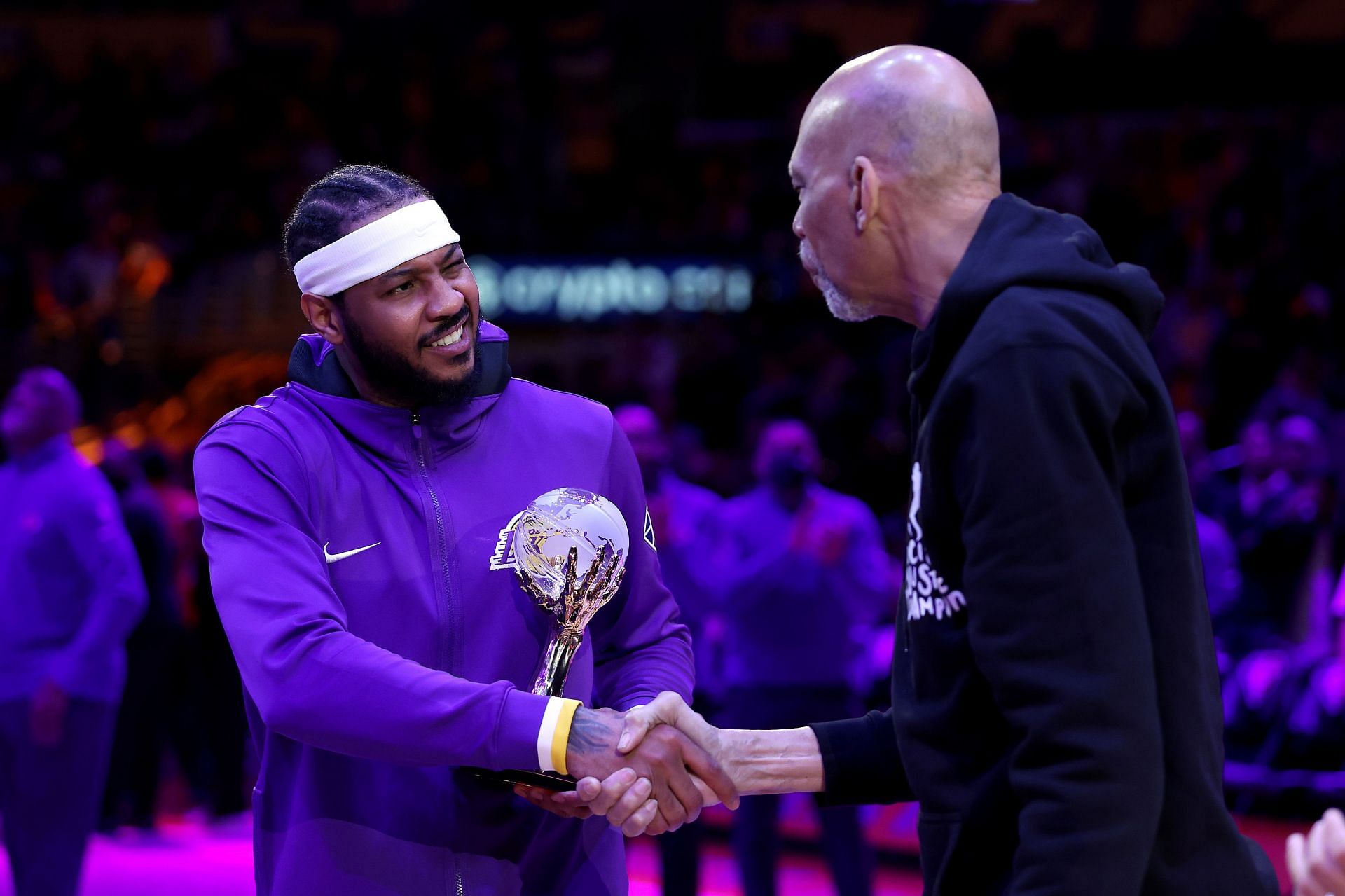
The NBA introduced the Kareem Abdul-Jabbar Social Justice Champion award in 2021, with Carmelo Anthony winning the inaugural edition. Reggie Bullock of the Dallas Mavericks won it last season.
Naming the award after the legendary former six-time NBA MVP was fitting. Abdul-Jabbar's passion and dedication to the black community was evident throughout his career and even after it. He was a popular figure in the Civil Rights Movement when he was college basketball’s best player for three years at UCLA.
In 1967, he became the youngest member of “The Cleveland Summit,” the group that supported 25-year-old Muhammad Ali’s decision not to join the Vietnam War. The movement was organized by NFL star Jim Brown and was also supported by perhaps the greatest civil rights activist in the NBA, Bill Russell.

